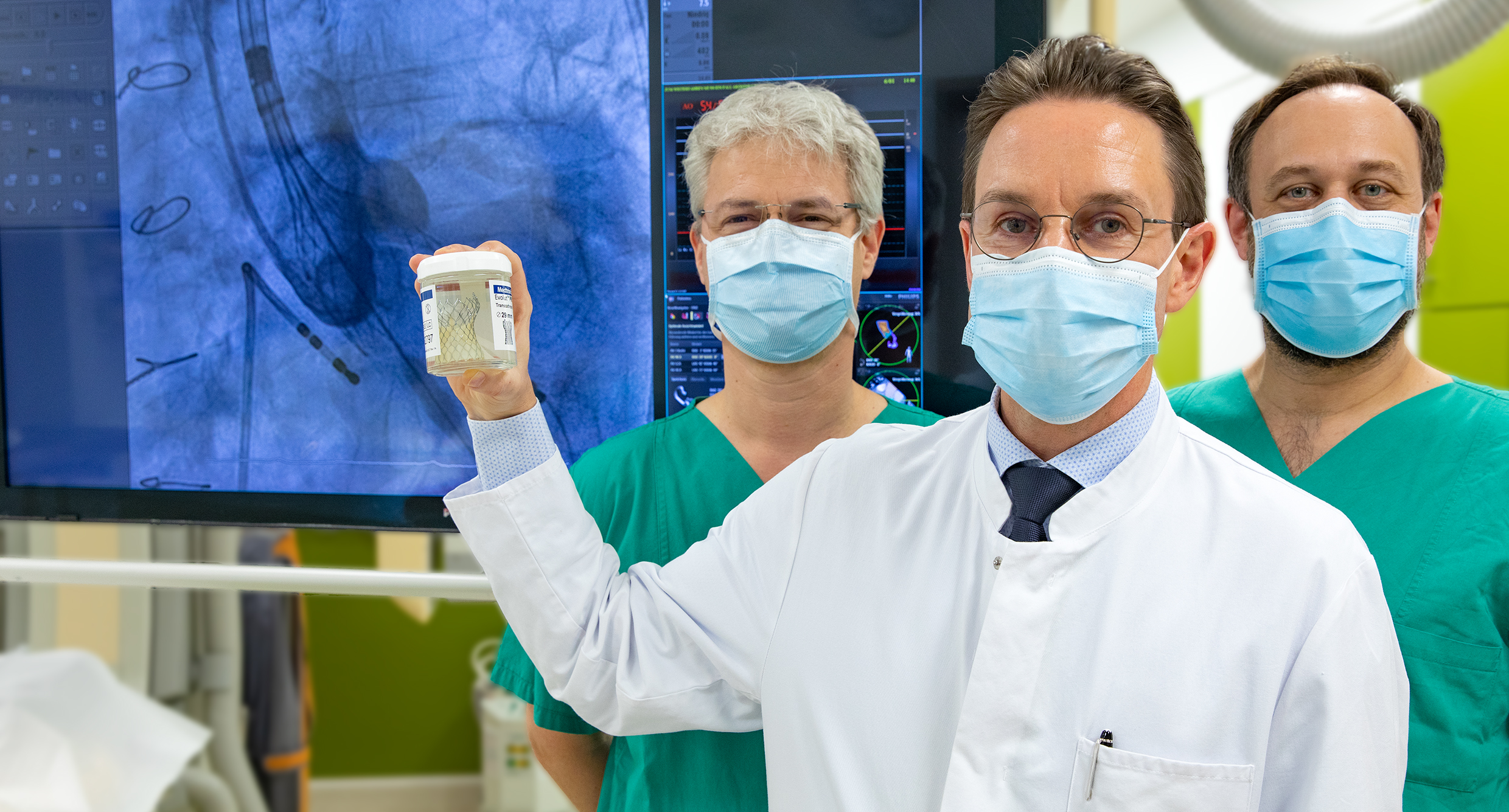Evolut™ PRO+ offers more blood flow with a smaller construction

Professor Bauersachs with the new TAVI system in the foreground and Professors Dr Julian Widder (left) and Dr Tibor Kempf; Copyright: MHH/ Karin Kaiser.
02.06.2021
Narrowing of the aortic valve, known as aortic valve stenosis, is the most common heart valve defect in old age. The valve leaflets of the aortic valve are thickened and have difficulty opening and closing. A heart valve replacement is the only treatment option for aortic valve stenosis. For many patients today, a catheter-based replacement of the aortic valve, or TAVI (Transcatheter Aortic Valve Implantation), is a safe and gentle way to replace the diseased heart valve on the beating heart, usually without a general anaesthetic.
The new TAVI system (Evolut™ PRO+), which was implanted in Northern Germany for the first time on 1 June by the heart team led by specialist Professor Dr Julian Widder of the Clinic for Cardiology and Angiology, offers advantages with its special design: The new valve leaflets of the prosthesis lie above the natural aortic valve ring. This allows for a wider valve opening than with other types of valves. "The larger the valve opening area, the easier it is for the heart muscle to pump blood into the body," Professor Dr. Bauersachs, Director of the Department of Cardiology and Angiology, explains the effect. On 1 June, a 91-year-old patient from the Baltic Sea resort of Boltenhagen received the new system in a 45-minute procedure. "She will already be able to leave the clinic in a few days," adds the cardiologist.
The size of the patient's access vessels, in turn, determines whether the procedure can be applied via the groin. "In about ten percent of our patients, the vessel diameter is just 5 to 5.5 millimetres. For these patients, we need systems that are as narrow as possible so that the new heart valve can be safely advanced to the heart," explains Professor Widder. The slim insertion system of the new TAVI system ensures easier access even for patients with a small vessel diameter of only 5 millimetres.
The valve leaflets made of biological material (pericardium) are sewn into a flexible framework made of a special metal composition (nitinol). This allows the prosthesis to adapt particularly well to the respective valve and aorta. An additional coating on the framework of the valve also ensures a better seal. "This gives us more options for finding the right valve prosthesis for each of our patients," Professor Bauersachs emphasises.
SERVICE:
For more information, contact Prof. Dr. Julian Widder, phone (0511) 532-3840, kardiologie@mh-hannover.de.